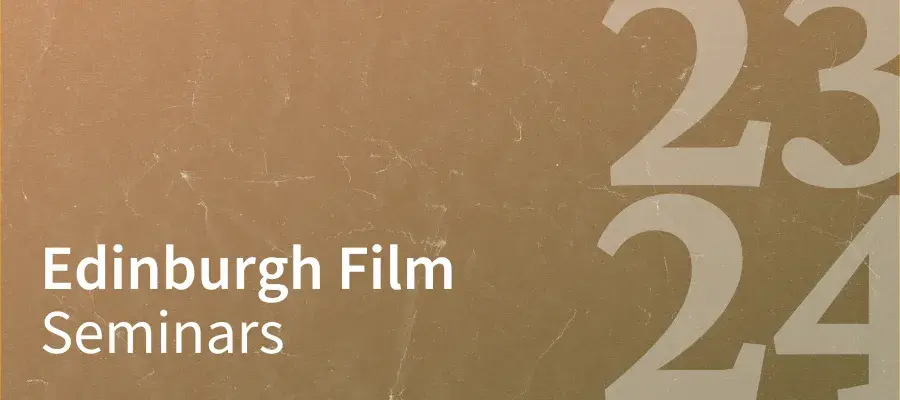In brief
Date - 22 May 2024
Venue - Screening Room G.04, 50 George Square
Speaker - Professor Charlie Keil (University of Toronto)
Title - Transition and the Historiographical Vagaries of Silent American Cinema
Abstract
by Charlie Keil
When first introduced as a concept specific to early cinema in an essay for Cinema Journal in 1991, the notion of “transition” came firmly attached to the name and work of D.W. Griffith. Subsequently, it was broadened to apply to all American filmmaking from 1907-1913, and then later again to define a period that stretched into the late 1910s.
Thirty years since its initial coinage, the “transitional era” has proven nearly as durable a label as “cinema of attractions,” and while less influential, it still invites its share of dispute. Criticized as both teleological and provisional, too yoked to classicism and insufficiently applicable to national contexts other than that of the U.S., the “transitional era” has weathered numerous challenges to remain an historiographically durable way of thinking about late-period early cinema.
With the advent of numerous methodologies designed to expand our purchase on early/silent cinema, including media archaeology and Andre Gaudreault’s useful label of institutionalization, transition warrants renewed interrogation. What remains useful about the idea of transition? How does it intersect with and inform ongoing developments in our investigation of silent American cinema?
By examining phenomena as diverse as the development of continuity editing, the exploitation of the star system, and the mechanisms of self-regulation and self-promotion endemic to this period, I will make the case that transition has persisted as a conceptual and historiographic category because it continues to have explanatory utility.
About the speaker
Charlie Keil is Professor in the Cinema Studies Institute and Department of History at the University of Toronto, where he is also Principal of Innis College and a member of the President’s Teaching Academy.
He has published approximately 50 journal articles and book chapters and is the author and/or editor of eight books, the most recent of which are Editing and Special/Visual Effects, co-edited with Kristen Whissel (2016), A Companion to D.W. Griffith (2018), and the Oxford Handbook of Silent Cinema, co-edited with Rob King (2024).
How to attend
This event is free to join, and open to all. Spaces are limited, so you can reserve your spot on Eventbrite.
Book your free ticket on Eventbrite
About the Edinburgh Film Seminars
Each semester, the Edinburgh Film Seminars bring a broad range of film academics and experts to the University of Edinburgh.
Are you interested in studying film at Edinburgh?
Exploring crucial concepts in the development of film theory and film-philosophy, one one-year taught Masters programme (MSc) centres on the criticism, analysis and interpretation of auteur cinema, with a focus on European and American film.
We also supervise PhD research in film theory, film-philosophy, various national cinemas, the work of individual filmmakers, and cinema in relation to other art forms.


